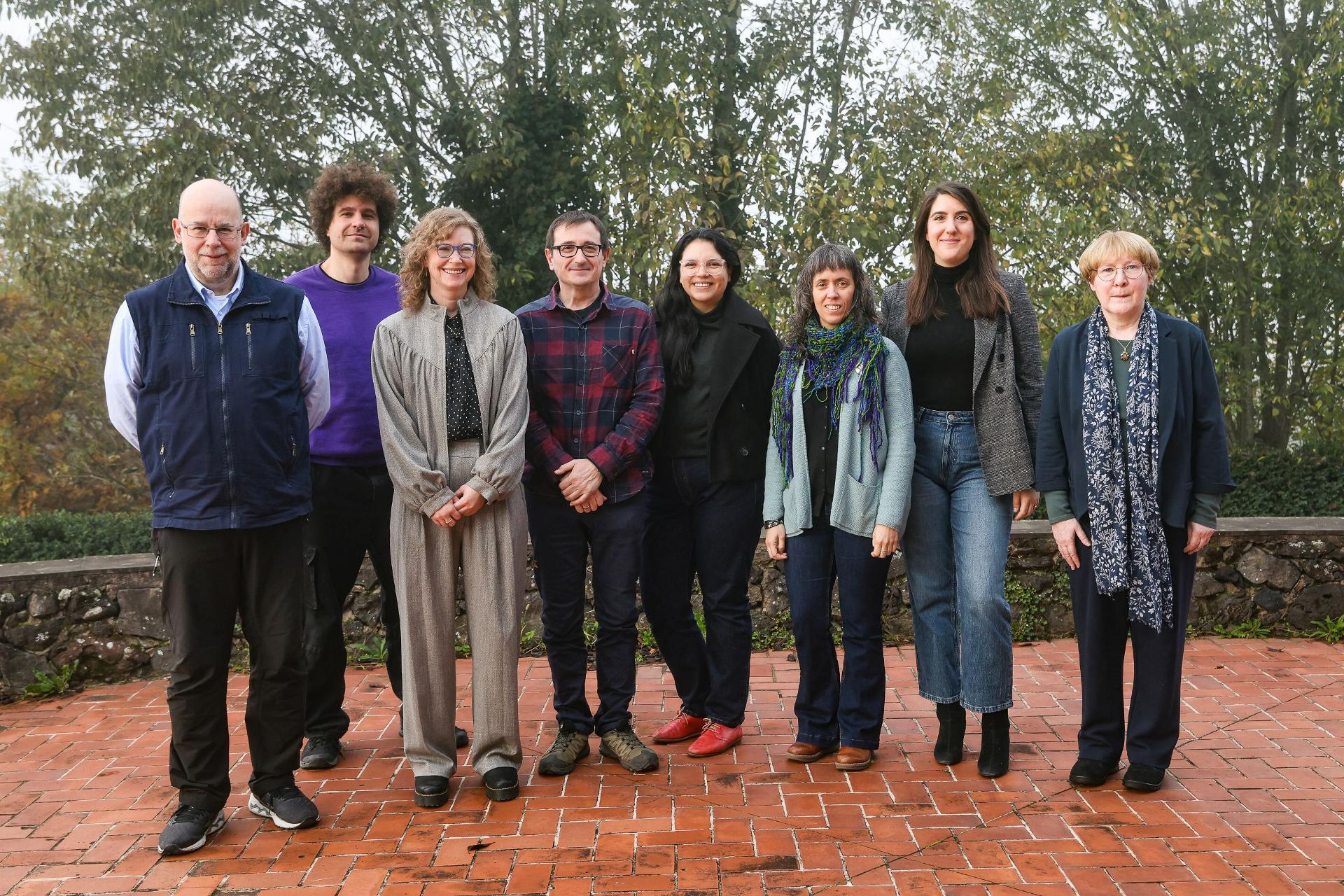Faberllull Olot warmly invites historians, anthropologists, and philosophers of science from different parts of the world. From now until December 1, they will create a platform for contemplation and exploration of the connections between science, territory, and society by examining the past evolution of science.
The group of residents includes Kathleen Histon (Ireland), a palaeontologist and strategist who is researching ways to use the history of palaeontology in scientific outreach within museums, teaching, and other areas of society; and Ezio Vaccari (Italy), a university lecturer in the history of science who is studying how the work of Earth science historians can benefit contemporary science and society; Jessica Ratcliff, a university lecturer from the USA, is currently analysing the impact of the India office on the political economy of science in Great Britain from 1858 to 1947. The researcher in the history of science Max Bautista (Brussels / Madrid / Barcelona) is writing a chapter of his doctoral thesis on the ambition to build science-based environmental awareness in Catalonia. Researcher and university lecturer Judit Gil-Farrero (Zaragoza), will work on a scientific article on the role of scientific dissemination in the change in the social perception of the landscape of the Garrotxa volcanic area and the Empordà wetlands. Doctoral student Sílvia Pérez Criado (Valencia), is analysing the development of the chemical pesticide industry, with a special emphasis on DDT; science historian Miquel Carandell (Aiguafreda), wants to transform his doctoral thesis on the case of "L'Home d'Orce" into a novel; and geology socialiser Isaac Camps (Terrassa), is working on how geology can capture the interest of the general public.
Return activities
The residency is jointly organized with the Observatory of Humanities in Medicine at Hospital d'Olot and coincides with the XVIII Meeting on the History of Science and Technology, which is being held at l'Espai Cràter until Saturday. Several of the residents will, in fact, take part in the activities scheduled in this space. This Thursday, Jessica Ratcliff is scheduled to present the opening lecture on science museums in the British Empire. Kathleen Histon will discuss the Campi Flegreus volcanic region in Italy, Sílvia Pérez Criado will detail the development of the pesticide industry, and Judit Gil-Farrero will concentrate on the shift in social attitudes towards the Garrotxa volcanic area's landscape.
Tomorrow, Miquel Carandell will present the example of the Ibero-American Federation of Zoological Parks and Isaac Camps will lead a walk through the history of Montsacopa. On Saturday, Ezio Vaccari will deliver the closing lecture of the encounter, which will focus on the interdisciplinary challenges of the history of science.
In addition to the encounter, two activities accessible to the general public have been planned. On Tuesday, November 26th at 6 pm, Sílvia Pérez Criado will deliver a talk at the Hospital d'Olot auditorium on “Raising Children in DDT: History and Risks of DDT in Health”. On November 29th, Friday, at 7 pm, Judit Gil-Farrero will be discussing “Environmental education, a key strategy in the creation of the natural parks of the Garrotxa volcanic area and the Empordà wetlands” in Can Trona.
The remaining activities are targeted towards particular groups. On Monday morning, Jessica Ratcliff will present a lecture at the Institute of the History of Science (UAB), and in the afternoon, Kathleen Histon will discuss her work with English students at the Official School of Languages of Olot. On Tuesday, Miquel Carandell will discuss l’Home d’Orce with the two groups of secondary science students at the La Garrotxa Institute. On Wednesday, Max Bautista will participate in a round table discussion with the technicians of the Natural Park of Volcanica de la Garrotxa in Can Jordà, focusing on the history and future of the relationship between science and management.






